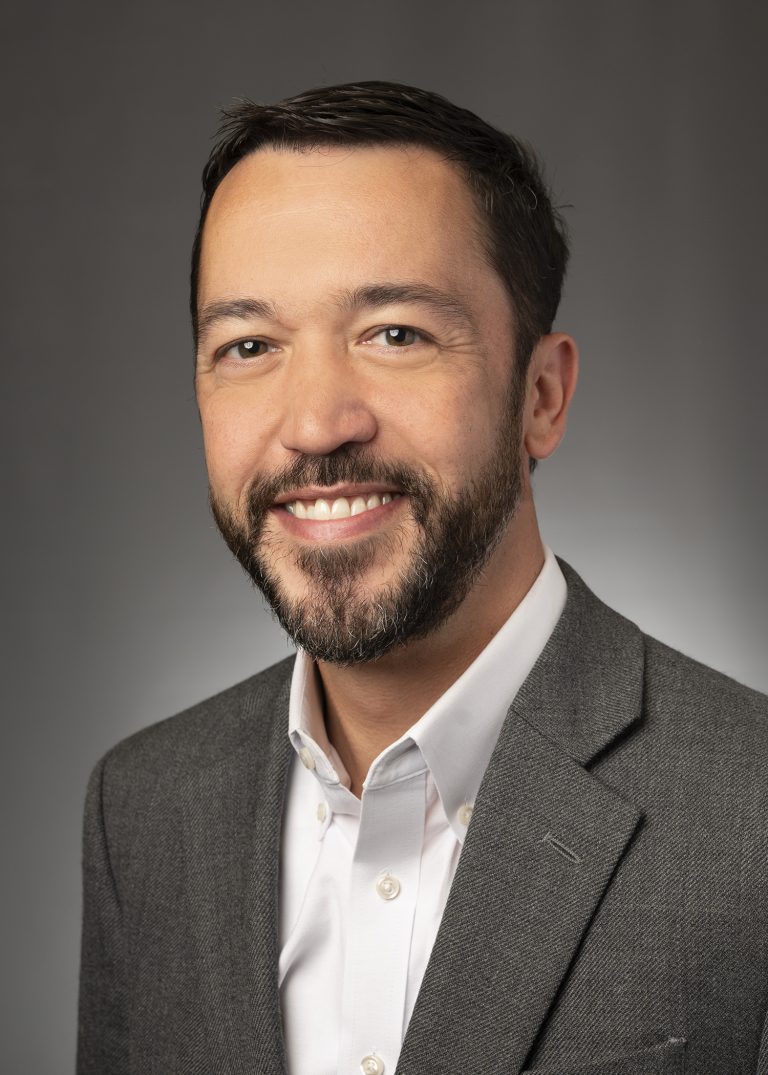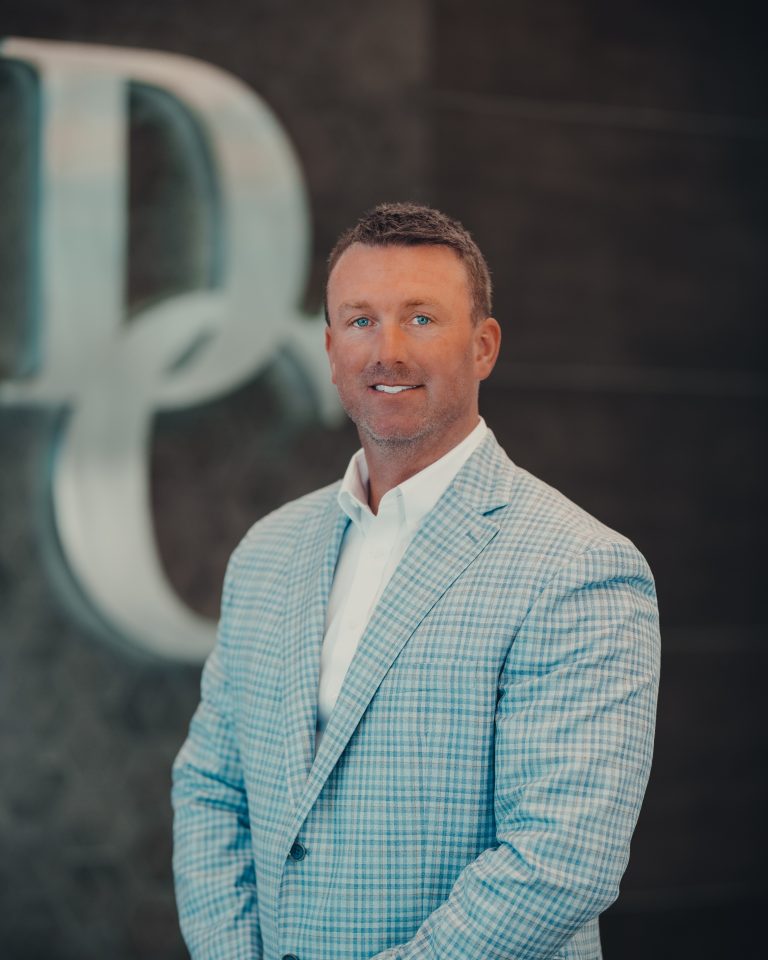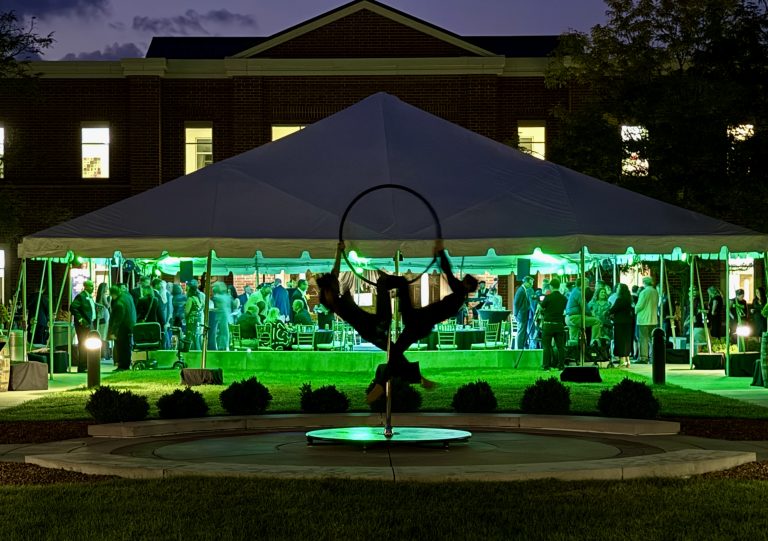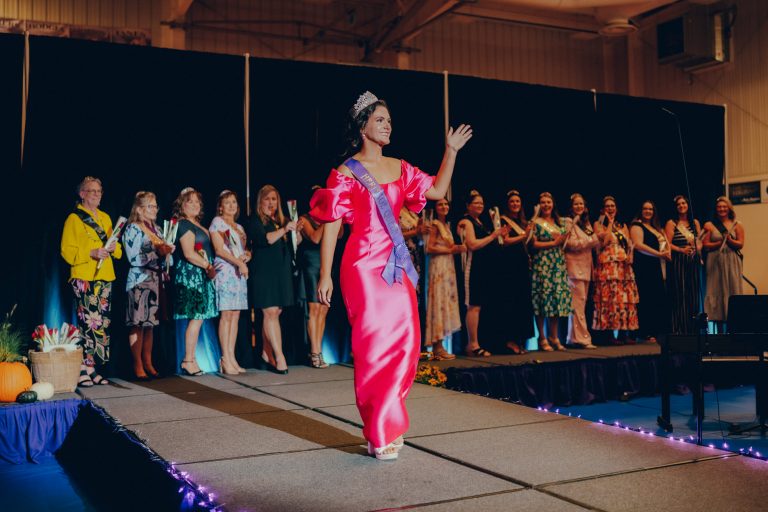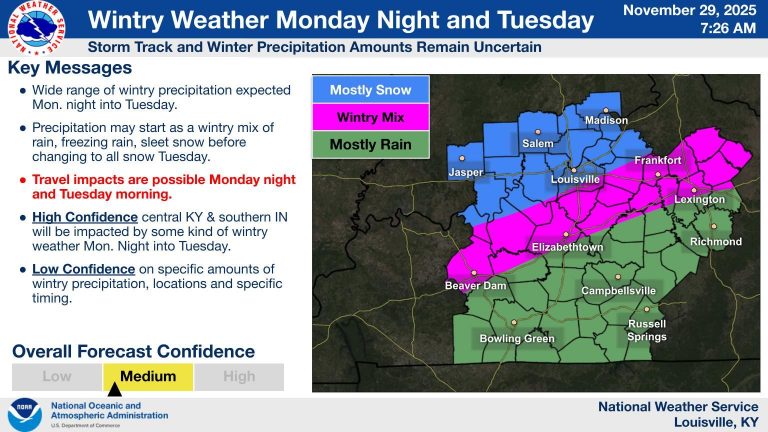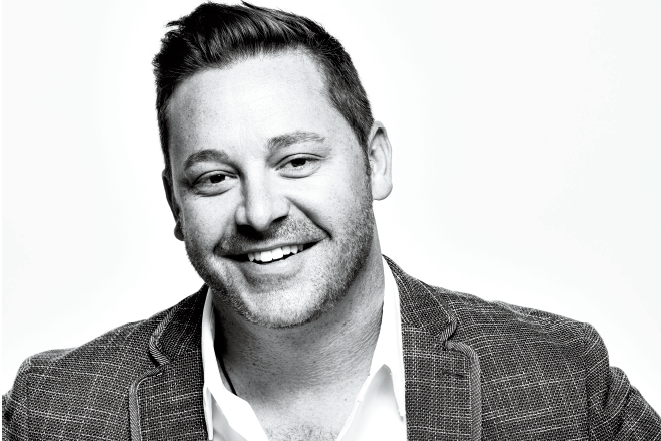
“What I have found is the true meaning of what love is in every aspect of my life: I love more today.”
Local real estate guru Paul Kiger was a force of nature, a whirlwind of energy. But much of that was focused on running from demons, until he came clean and focused on himself.

To the outside world, the trajectory of Paul Kiger’s life has resembled the bar chart of a great annual report – a steady upward climb to the top.
“He’s just a force of nature,” said Sarah Ring, his business partner for the last five years. “Always in full motion, working, thinking and acting faster than everyone else.”
High school class president. Marching band. School theater. Tennis team. Plus, he worked at his family’s grocery store in tiny New Middletown, Ind., and for his father’s roofing business.
Played baseball in the summer, basketball all winter. Drove go-karts on a track his father built for him in the backyard. Rode scooters and four-wheelers on gravel roads. Went with his grandmother to a picture-perfect Methodist church out in the middle of a cornfield.
New Middletown, population 83, had one stop sign in the middle of town. A model, small-town, Southern Indiana childhood, right out of a Booth Tarkington novel or an Andy Hardy movie.
And then, on to Ball State University, where Kiger was the only freshman to have his own news show on the campus radio station and was the vice president of his fraternity, pledge trainer and social chair. “I was the one who brought the girls to the parties,” Kiger said.
Also, while in school, he worked for the Ball State Foundation, calling alumni and asking for money. “I was raising $25,000 a semester,” he said, which taught him something about a skill of his that could prove useful in the future. “I learned that I was good on the phone and that I had a salesman’s personality.”
 Denial and Unacceptance
Denial and Unacceptance
As far as Kiger’s internal life, though, there were bumps in the bar chart. While appearing to thrive at Ball State, he was also insecure, a small-town boy intimidated by upperclassmen from Indianapolis and Chicago. “I still had a country accent then,” he said, “which I spent a lot of time working to get rid of.” Another trait to add to his skill set – a chameleon-like ability to change his colors to whatever he felt the situation demanded.
But his small-town accent was easy to change, in comparison to the secret he was then harboring. Kiger is gay. And even in the “Will and Grace” stage of the late 20th century, where so much was out of the closet and celebrated, that was scary to him.
In fact, at first, it was a secret he didn’t entirely understand. Then it became a secret he understood enough to keep it hidden from the world – even from himself.
“I remember being bullied in high school,” he said. “Maybe it was because they were all wearing Carhartt pants and camo boots and I was wearing Doc Martens and Guess jeans. I could say it was all that redneck stuff. But I wasn’t accepting me, so why should anyone else accept me?”
He was in denial. “I thought dating girls would ‘fix’ me,” he said. “So I dated a lot, the prettiest girls, but that wasn’t any kind of a magic pill.”
The effort to keep it private, while still reaching for all those symbols of what he thought meant success – money, great car, great house, great wardrobe – began a descent into alcoholism and prescription drug addiction. It wasn’t until later, when Kiger was able to come to terms with all his demons, that he realized true relief, a flight to freedom.
But that came much later. In these earlier stages of his career, Kiger’s life did not appear to the world to be the life of a tortured man. Which is exactly the way he carefully planned it.
“He’s mister charm, charismatic, bigger than life,” said Ring. “People are drawn to him.”
“He’s perfect out in the world,” said long-time friend Debbie Farmer, owner of Creative Enterprises in New Albany.
“Perfect out in the world,” perhaps, but to Kiger it was part of an exhausting self-camouflaging program. He partied hard, partly to help deal with his secret and his insecurities – and then just to party.
Out And Relieved
In his junior year in college, though, Kiger did come out to his fraternity brothers. The reaction was so supportive and so positive that he was able to put at least that demon to rest. “It was a huge relief,” he said, “not looking over my shoulder anymore, not waiting for something to happen – even if nothing ever happened.”
But there were still malingering demons. “The struggle, generally, became my driving force,” he said, “to make something of myself. The ‘I’m going to prove that I’m better than all of you!’ syndrome. I think that’s typical for the LGBTQ community.”
Alcohol And Adderall
So Kiger’s life went into overdrive – working hard, partying hard, drinking hard.
“What do 20-year-olds do? You go to the bars, that scene, those relationships. But I never really liked staying out late. I had myself tested for ADD (attention deficit disorder) and was prescribed Adderall. That became a miracle drug for me for the next 10 years.”
But it also turned into a vicious cycle. “Adderall was an upper that allowed me to stay out later, so I could drink more.”
Not that it in any way affected Kiger’s career. Based on his successful work for the Ball State Foundation, he was hired by Progressive Insurance as an insurance adjustor. “It was an awesome job. Good pay and lots of travel.”
He started in Louisville, but Progressive moved him to Minneapolis, then to Ft. Lauderdale. Then he moved to Chicago, for another company.
“In Chicago, I decided I’d had enough of the insurance business and moved back to Southern Indiana.”
He bought a historic New Albany mansion on East Market Street, extensively renovating it and starting a new career at the same time.

Keeping It Real Estate
“My sister, Paula (Kiger), was in real estate, and she taught me how to get licensed and build my book of business. Everything in real estate is relationships, so I began assembling my local network. I joined everything. If it had ‘New Albany’ in the name, I was involved.”
That’s when he met Farmer, who was president at the time of Develop New Albany.
“Boy, did he get involved,” she recalled. “He joined our board, and we immediately clicked. It became a mentoring relationship, for him and for me.”
She also saw the hard-charger behind the charismatic personality. “I remember being impressed with how focused he was on his business,” she said. “I watched him build it, brick by brick. He was on warp speed, trying to accomplish all those things.”
But “warp speed” is generally exhausting. Kiger joined a Re/Max Advantage office in Floyds Knobs that was owned by his sister Paula Kiger and Linda Finney. It was 2007. The real estate market was about to go into free fall.
“My first year, I netted about $2,000,” he said. “I basically lived off my credit cards. By the next year, though, I was making six figures.”
In 2010, Kiger was named Realtor of the Year in Southern Indiana. He was just 30. The next year, he was featured on the HGTV show “House Hunters.”
“If there was a spotlight, I always found a way to be in it,” he joked.
Conversely, he said, his success was a justification for his drinking and drugs.
Hey, No Problem
“There had been no repercussions from my addictions,” he recalled. “I was never going to be that guy who made an ass of himself at a bar. There were no DUIs, my business was good, I was making money. But that only made the whole thing worse. I concluded that I had no problem balancing everything and making it work.”
That, however, was becoming a thin veneer.
“On paper, I was a rock star,” he recalled, “but I was spiritually sick. Nothing was ever enough. I had no sense of a higher power. I volunteered for everything, but always with selfish, self-centered motives.”
It didn’t affect his work. But alcohol is a depressant, and he needed to be up when he was out networking. So there was an increasing reliance on the Adderall, which is an amphetamine. It becomes a spiral, and spirals usually spiral downward.
Besides, it must have been frightening for a man who strove for everything, only to have everything and still not be fulfilled.
“I found out that driving a Lexus at the age of 25 did nothing for me,” he said. “By 2009 and 10, I was drinking and overmedicating, and getting miserable.”
 “I will not bury you”
“I will not bury you”
Kiger was blasting through his Adderall meds. In 2015, his partner Andrew got ahold of his pill bottle. “Two weeks into my 30-day prescription and I had only five left. It was obvious that I was abusing. And, to make it worse, he thought I had quit the year before.
“I’ll never forget what he said to me: ‘I will not bury my partner. We won’t be together if you continue to destroy yourself. I’ll still be your friend, but I will not be your partner.’ ”
That’s when Kiger decided he was “sick and tired of being sick and tired.”
“I stopped the drinking and the meds and checked into a treatment center,” he said. There, he found a 12-step program that worked for him. He also found God.
“I’d always had a conflict with God over the whole gay thing,” he said. “But I had a spiritual awakening. That was the biggest thing, finding a higher power. If I were to trust the process, it would now be OK to trust God.”
He joined St. Paul’s Episcopal Church in New Albany, though he admitted that what first attracted him was the architecture. “It’s like a mini-castle.”
What drew him in, though, was the traditional feel of the service and the hymnal. “It was like going to church in New Middletown with my grandmother.”
And what sealed the deal, for him, was the church’s progressive nature and its acceptance of the gay community.
Keep It Simple
And so it was back into the fray for Kiger. Only this time, he was concentrating on his recovery – and the recoveries of other alcoholics. “My priorities changed,” he said. “I needed to be of service, counseling others, giving to them what had been given to me – a softer way of living. Being part of a sobriety program saved my life.”
“I think he has learned that people will accept him as he is,” said business partner Sarah Ring. “He’s more settled. He doesn’t have to work so hard at it.”
She said he’s completely focused on his recovery now. “He meditates, prays, goes to his meetings and is serious about taking care of himself. It’s his new top priority.”
It’s all part of the same “Paul personality,” said his friend, Debby Farmer. “As much as he embraced the lifestyle he’d had before, that’s how much he has embraced this new lifestyle – only this is a positive one. It’s a lifestyle that feeds his soul.”
Kiger works out three to four days a week at Katy Hearn Gym with Chastain Schneider. He also simplified his life, moving out of his 6,000-square-foot New Albany mansion and into a three bedroom/two bath, 2,000-square-foot brick ranch in Silver Hills.
He’s also remained civically active. Kiger is involved in the City of New Albany Human Rights Commission and is the 2019 incoming president of SoIN, the tourism bureau of Clark and Floyd counties.

“What we need from a president is a connection with the community, good at networking and partnering and a willingness to get involved and learn,” said SoIN Executive Director Jim Epperson. “And Paul is all that. He lives the SoIn lifestyle. He’s familiar throughout the neighborhood, runs a local business and enjoys the local nightlife. He has enormous energy.”
Yes. Only now, it’s not an energy fueled by cocktail glasses and pill bottles. And it’s no longer motivated by selfish or practical concerns. It’s all coming from somewhere else, somewhere within – from the spirituality he has finally found.
“I’m truly happy and content,” Kiger said. “At last, I can say that.”








